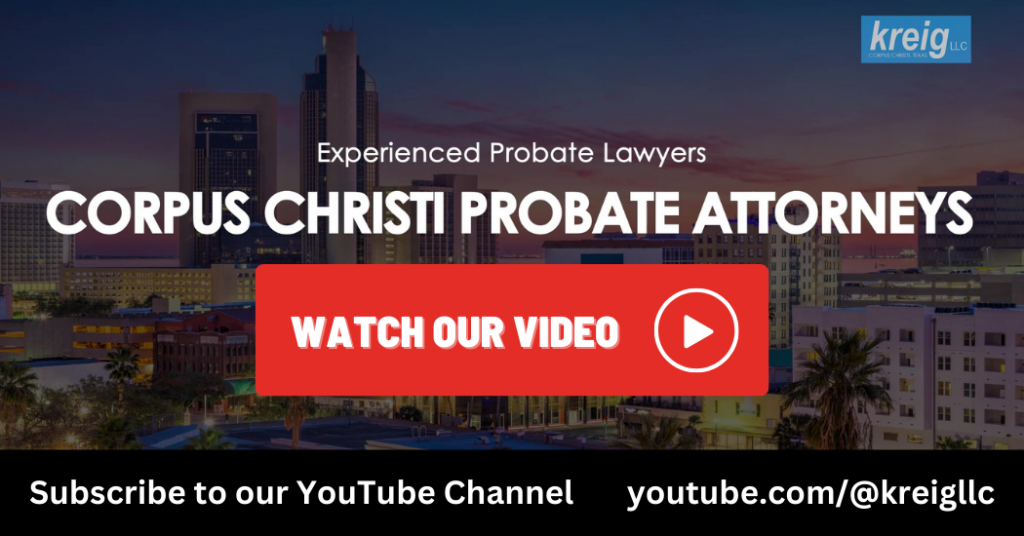In the world of estate planning and probate, wills are crucial legal documents that ensure a person’s final wishes are carried out as intended. There are many types of wills, including holographic will. According to Section 251.051 of the Texas Estates Code, a holographic will is a will entirely handwritten by the testator (the person creating the will) without the need for witnesses.
In the State of Texas, wills can be challenged by anyone who has an interest in the will or the estate. What happens when the authenticity of a final will is called into question by an alleged holographic will? The legal case In the Estate of Pedro Vera Jr., No. 13-19-00473-CV (Tex. App. – Corpus Christi [13th Dist.] 2020) helps to answer this question.
Facts & Procedural History
The decedent died in 2018. Two months later the decedent’s neighbor filed an application to probate a holographic will.
This will was purportedly written during Thanksgiving dinner at the decedent’s home in the presence of his neighbor and his family. The neighbor and his family claimed that the decedent signed the holographic will to leave his estate to the neighbor and his family.
The decedent’s brother filed a will contest to challenge the holographic will. The brother argued that the holographic will contained an “unmatching signature.”
The case went to trial and the primary issue in this case was whether the holographic will was valid.
What is a Holographic Will?
A holographic will is a will that is handwritten and signed by the testator (the person making the will).
In Texas, a holographic will is considered valid if it meets certain criteria. According to the Texas Estates Code, a holographic will must be:
- Entirely written in the testator’s own handwriting. This means that the material provisions and the signature must be in the handwriting of the person making the will.
- Signed by the testator. The will must bear the signature of the person who wrote it, which is usually placed at the end of the document, although Texas law is somewhat flexible on this point.
- Dated. While not a strict requirement, dating the will can help in establishing its validity and in resolving any disputes that may arise between different versions of the will.
Witnesses are not required for a holographic will to be valid in Texas.
However, after the death of the testator, the will must be probated, which means it must be proven in court to be the last will and testament of the deceased. This often involves providing evidence to confirm the handwriting and intent of the testator.
If the holographic will meets these criteria, it can be admitted to probate and the estate can be distributed according to its terms.
The Validity of Holographic Wills
While holographic wills may seem like a convenient alternative to more formal types of wills, they are often more susceptible to challenges and disputes, mostly due to their lack of formality and potential for ambiguity.
That is what was at issue in this case. The neighbor argued that the holographic will met the legal requirements for validity, asserting that the signature was valid and the will was properly witnessed. However, the decedent’s brother contested the authenticity of the signature on the holographic will, stating that while he was not present at the Thanksgiving dinner where the holographic will was created, it was not his brother’s signature as he was very familiar with it.
The probate court found that the witnesses presented by the neighbor were not credible and that the signature on the holographic will was not that of the decedent’s. It should be noted that the probate court reached this conclusion even though the holographic will did not need any witnesses for it to be a valid will. The document alone would have been enough. Presumably the document and testimony from a handwriting expert could have been all it would have taken to convince the probate court to admit the holoptic will to probate.
The appeals court upheld the probate court’s decision to deny the probate application, stating that the evidence did not establish, as a matter of law, that the holographic will was valid.
The Court noted that the trial court is the sole judge of the credibility of witnesses and the weight given to their testimony, and they found that the trial court’s decision was supported by the evidence presented due to the fact that the signatures could not be validated and that they were all coincidentally beneficiaries in the holographic will.
Since the holographic will did not meet the signatory requirements for a valid will under the Texas Estates Code, the appeals court affirmed the probate court’s judgment.
Tips for Executing Holographic Wills to Ensure Validity
Given the challenges often associated with holographic wills, as evidenced by the case discussed in this article, there are some basic steps you can take to increase the likelihood that your holographic will stands up in court.
- Be Clear and Explicit: While drafting your holographic will, ensure that your instructions are clear and explicit. The lack of clarity can be a ground for contesting the will. Use simple language and straightforward sentences.
- Use Full Sentences: It might be tempting to jot down notes or fragments, but full sentences are easier to interpret and less likely to be contested.
- Include Vital Information: Make sure to list key pieces of information like your full name, the date, and your place of residence. This can help in establishing the authenticity of the will.
- Sign and Date: Always sign at the end of the document. Though dating is not strictly required by Texas law, it helps in case there are multiple wills. The date can be critical in determining which is the most recent (and therefore usually the most legally valid) will.
- Consistent Handwriting: Ensure that the entire will is written in consistent handwriting. Changing styles or writing instruments could raise questions about the document’s authenticity.
- Avoid Corrections: Stray marks, cross-outs, or corrections can raise questions about your original intentions. If you make a mistake, it’s usually better to start over on a clean sheet of paper.
- Store Safely: Once completed, store your holographic will in a safe but accessible place. Make sure that someone you trust knows where to find it after your death.
- Probate Considerations: Though a holographic will doesn’t require witnesses, it’s a good idea to discuss your wishes and show your handwritten will to a few trusted individuals. They could later serve as witnesses during the probate process to confirm your handwriting and intentions, if needed.
- Legal Review: Although the charm of a holographic will is its simplicity and that it doesn’t require a lawyer, consulting one to review the will can provide an additional layer of security. A lawyer can also provide you with specific advice tailored to your situation, potentially saving your heirs from a protracted legal battle.
- Regular Updates: Life circumstances change. Regularly review and, if necessary, update your holographic will to reflect your current wishes. If you update it, destroy the old one to avoid any confusion.
By adhering to these general rules, you increase the chances of your holographic will being accepted as valid in a court of law, thereby ensuring that your last wishes are honored as you intended.
The Takeaway
This case highlights the importance of establishing the authenticity of wills in probate proceedings. While the appellant argued that the alleged holographic will meet all of the legal requirements, including proper witnessing, the challenge from the decedent’s brother ultimately prevailed. In probate matters, the court is the ultimate judge of witness credibility and the weight of the evidence. Even with witnesses testifying to the will’s validity, the court’s assessment of their credibility played a pivotal role in the outcome.
Do you need help with a probate matter in Corpus Christi or the surrounding area? We are Corpus Christi probate attorneys. We help clients navigate the probate process. Call today for a free confidential consultation, 361-298-1109.
Our Corpus Christi Probate Attorneys provide a full range of probate services to our clients, including helping with probate disputes. Affordable rates, fixed fees, and payment plans are available. We provide step-by-step instructions, guidance, checklists, and more for completing the probate process. We have years of combined experience we can use to support and guide you with probate and estate matters. Call us today for a FREE attorney consultation.
Disclaimer
The content of this website is for informational purposes only and should not be construed as legal advice. The information presented may not apply to your situation and should not be acted upon without consulting a qualified probate attorney. We encourage you to seek the advice of a competent attorney with any legal questions you may have.




